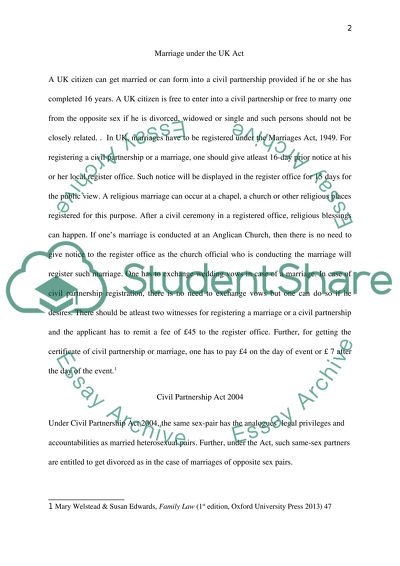Cite this document
(“The Civil Partnership Act 2004 was always an unsatisfactory compromise Essay”, n.d.)
Retrieved from https://studentshare.org/law/1627690-the-civil-partnership-act-2004-was-always-an-unsatisfactory-compromise-between-giving-some-legal-recognition-to-same-sex-relationships-while-preserving-the-special-status-of-marriage-the-marriage-same-sex-couples-act-2013-when-brought-into-force-w
Retrieved from https://studentshare.org/law/1627690-the-civil-partnership-act-2004-was-always-an-unsatisfactory-compromise-between-giving-some-legal-recognition-to-same-sex-relationships-while-preserving-the-special-status-of-marriage-the-marriage-same-sex-couples-act-2013-when-brought-into-force-w
(The Civil Partnership Act 2004 Was Always an Unsatisfactory Compromise Essay)
https://studentshare.org/law/1627690-the-civil-partnership-act-2004-was-always-an-unsatisfactory-compromise-between-giving-some-legal-recognition-to-same-sex-relationships-while-preserving-the-special-status-of-marriage-the-marriage-same-sex-couples-act-2013-when-brought-into-force-w.
https://studentshare.org/law/1627690-the-civil-partnership-act-2004-was-always-an-unsatisfactory-compromise-between-giving-some-legal-recognition-to-same-sex-relationships-while-preserving-the-special-status-of-marriage-the-marriage-same-sex-couples-act-2013-when-brought-into-force-w.
“The Civil Partnership Act 2004 Was Always an Unsatisfactory Compromise Essay”, n.d. https://studentshare.org/law/1627690-the-civil-partnership-act-2004-was-always-an-unsatisfactory-compromise-between-giving-some-legal-recognition-to-same-sex-relationships-while-preserving-the-special-status-of-marriage-the-marriage-same-sex-couples-act-2013-when-brought-into-force-w.


